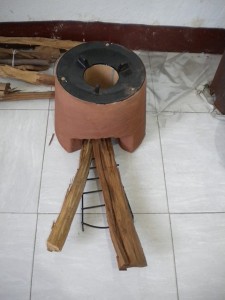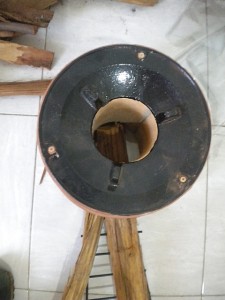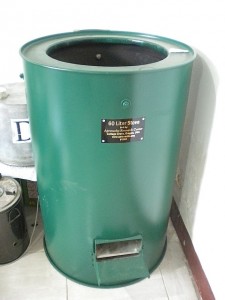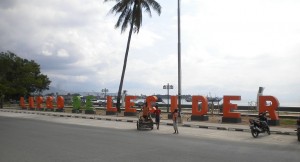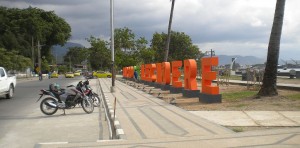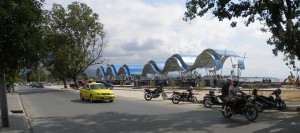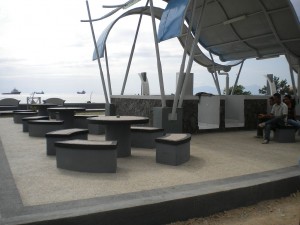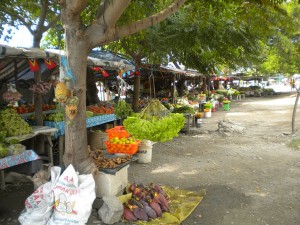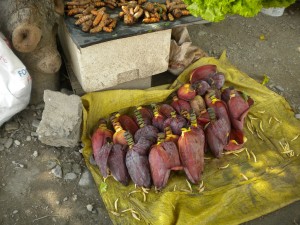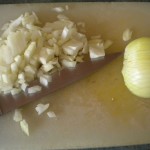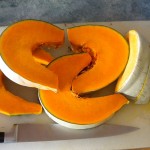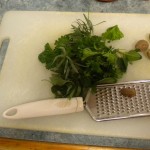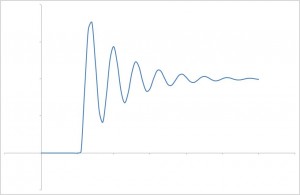It seems that it’s the time of the year (at least here in Oz) when the chooks go sulky and turn their attention to moulting and looking like they’ve been put through the spin-cycle. Yep, I only got 5 eggs in May, from four chooks, and it seems I’m not the only one. My mate Gavin over at “The Greening of Gavin” is also bemoaning the fact that his chooks have gone off the lay.

Chooks will slow down as they get older but the eggs will get bigger. When they are more than two years old they will almost never lay during winter. After four years they really slow down even in summer..
If you want fresh eggs all year round, the trick is to keep a rotation going. Buy point-of-lay chooks in Autumn and they will lay through the first winter and often through the second winter (although much fewer eggs). When the first lot reach two years old, buy a few more and retire the slowest from the originals (more on this shortly). The following autumn replace the last of the originals with some new ones. Then every year after that just keep the rotation going. That way you will always have chickens laying through winter and some chickens slowing down through the following summer.
For example we usually keep between four and six chickens and this is how we started
| year | New | 1 Year Old | 2 Years Old | 3 or More Years old | Total |
| 1 | 4 | 4 | |||
| 2 | 0 | 4 | 4 | ||
| 3 | 2 | 0 | 4 | 6 | |
| 4 | 2 | 2 | 0 | 2 to 4 (see text) | 6 to 8 |
| 5+ | 2 | 2 | 0 to 2 (see text) | 0 to 2 (see text) | 4 to 8 |
Depending on how things are going we don’t always replace some every year, but usually we do. Now, as my brood were getting a little older and I didn’t replace any last year, I knew I need to get some new recruits to fill the gap this winter. So I bought two new chooks and waited and waited but they didn’t lay and then one of the old chooks promptly turned her claws up. Still no eggs so, since we had a new person in the house who also likes eggs, I thought let’s buy another 2 and see which are the better layers. I now have 7 (all Isa Browns at the moment) and the new ones were just starting to lay before I went away for a few weeks. It will be interesting to see how they’re going when I get back because I have a sneaking suspicion that I might have an egg eater amongst them. I hope not, because if I can’t find it in time, and the others learn from the egg thief, I may have to replace all of them.
Now, you may have realised that chooks seem to be regularly vanishing from my flock. How does this happen? Well, chooks do die through natural causes, sometimes suddenly and for no apparent reason. Sometimes they get sick and then die although this should happen rarely. I have had the occasional fox get in and rip though the lot, but not for several years. I have even had the odd one fly the coop, literally, and vanish into the great unknown. But, as you have probably guessed, they also end up in the pot.
I have no problem dispatching a chook and turning it into soup or broth, but I know this puts some people off. Many people keep chooks well past their prime (in terms of egg laying) and treat them as loving pets and part of the family. They do make very good pets and are a joy to have in the garden. If that is your preference that’s fine but you will have to develop a different strategy if you want a regular supply of fresh eggs.
One final point, if you are going to eat them, don’t bother trying to roast or fry them. Once they are old enough to lay, they are already too old and tough. They are also relatively small and scrawny unless you get a mixed breed (ie meat and egg producer).
